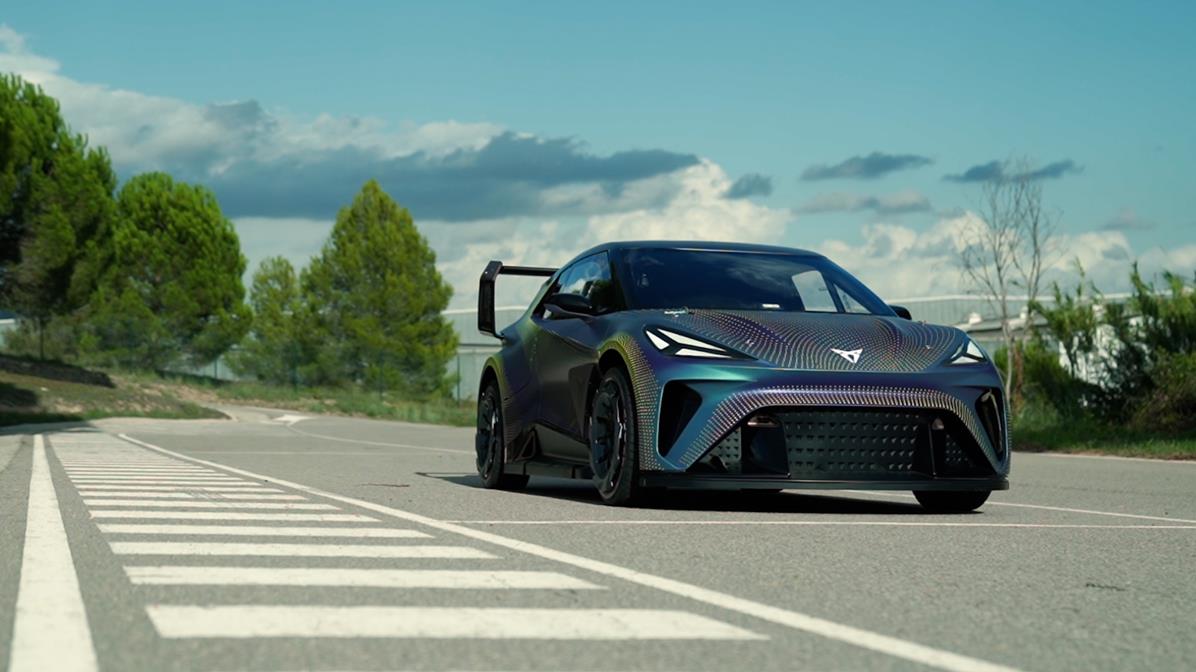The CUPRA UrbanRebel Concept on the move

100% electric
- The prototype unveiled in Munich takes to the track for the first time with Dr. Werner Tietz at the wheel
- The car reaches 100 km/h in 3.2 seconds thanks to its maximum output of 320 kW
- “The CUPRA UrbanRebel represents a bold statement from the brand that electrification and performance are a perfect match”
Martorell, 03.11.2021 – It was the surprise of the IAA International Motor Show in Munich. CUPRA presented its new design vision with a racing-inspired show car that lays the foundation for its future 100% electric city car. But the CUPRA UrbanRebel Concept isn’t just a show car. For the first time, we see it on the test track, driven by CUPRA Vice-president for R&D, Dr. Werner Tietz.
–From the showroom to the track. CUPRA’s new concept car emerges as the brand’s most radical interpretation after its unveiling; a vehicle where electrification meets sustainability and performance. And to prove it, there’s nothing better than taking it out of the showroom and seeing its racing spirit on the track first-hand.
-0-100 km/h in 3.2 seconds. The car reaches 100 km/h in just over three seconds. The key is the two engines that deliver all the power, combined with the thrill of driving a 100% electric vehicle. “The CUPRA UrbanRebel represents a bold statement from the brand that electrification doesn’t have to be boring” says CUPRA’s Vice-president for R&D. “The car has a constant power output of 250 kW and delivers 320 kW of maximum power to get the most out of it. It’s really fun to drive” adds Tietz.
-Aerodynamics on the track. The CUPRA UrbanRebel Concept has been designed to minimise drag with large air inlets and outlets and an oversized spoiler it. Although the car is 4 metres long and 144.4 cm high, the emphasis on aerodynamics enables it to stay close to the road with plenty of grip, and to take curves without losing any of its stability. “CUPRA’s unique chassis and steering set-up gives it very precise handling and is the inspiration for the series production” concludes Tietz.





